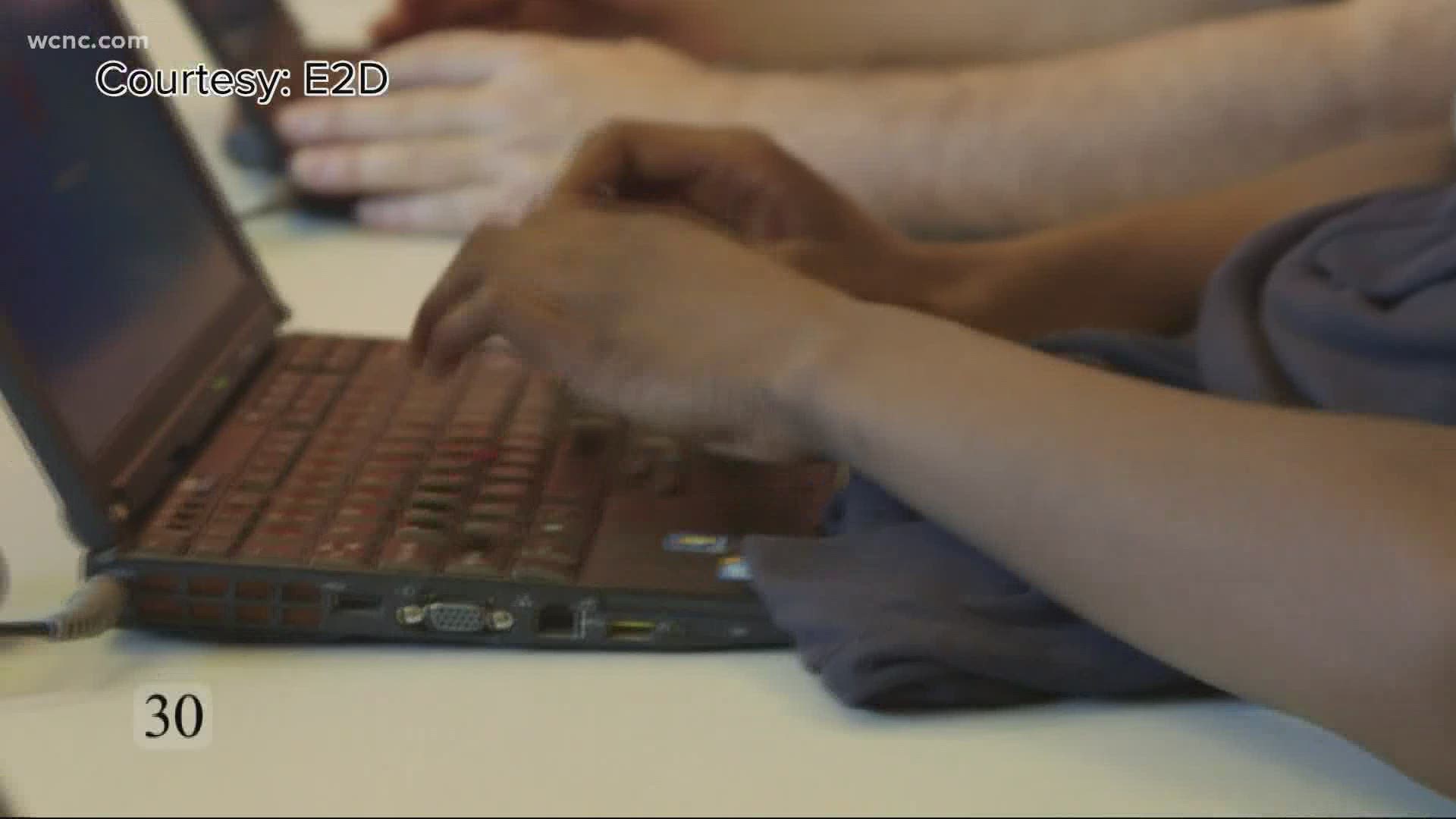CHARLOTTE, N.C. — In less than a month, students across the area will begin a new school year. The coronavirus pandemic has forced many districts to take learning online, but there are concerns it creates inequities.
It’s a problem educators have always known about but the pandemic has highlighted it. There are major imbalances in the education system and now there are worries remote learning will widen the gap even more.
A map of Mecklenburg County highlights Title 1 schools, plainly showing the different experiences of students. Title 1 schools are largely low performing and have the highest concentrations of students living in poverty.
Data shows online learning didn’t work for those students. Joel Ford, former State Senator and a CMS parent, thinks the way CMS is moving forward this upcoming school year will set some students up for failure. He said if businesses have been able to safely operate throughout the pandemic, schools should too for those who need it most.
“Safety is a priority, but learning has to be alongside of that. For those families where virtual learning does not work, my opinion is that we have to provide those families with an option,” said Ford. He believes an in-person learning experience should be given for families to choose.
Ford fears the gap will only get wider for the most vulnerable students. He said long term, low income families will suffer. It’s a concern some teachers and community members share.
Lawrence Brinson with the Charlotte Mecklenburg Association of Educators said some students don’t have the devices they need, or enough of them in the house for the number of kids.“Especially now, people don’t have the hours when it comes to working, so some people may not even have access to the internet at the moment,” said Brinson. He said a lot of the work falls to the state legislature and funding.
E2D, Eliminate the Digital Divide, is a local non-profit working to close the gap. Working alongside CMS, it gives students in title 1 schools who qualify for free and reduced lunch the technology they need to succeed.
“There are ways that we can help rebalance society to make things more equitable. To me, helping students and families get access to computers is the ultimate win, win, win. There’s no downside for us to help folks get online and become prosperous in 2020 Charlotte,” said Pat Millen, the co-founder and president of E2D.
They’ve already helped more than 12,000 families in the area bridge the digital divide, but Millen said there is still a long way to go. They’ll be distributing more laptops and technology before the start of this upcoming school year to the families who need it most.

